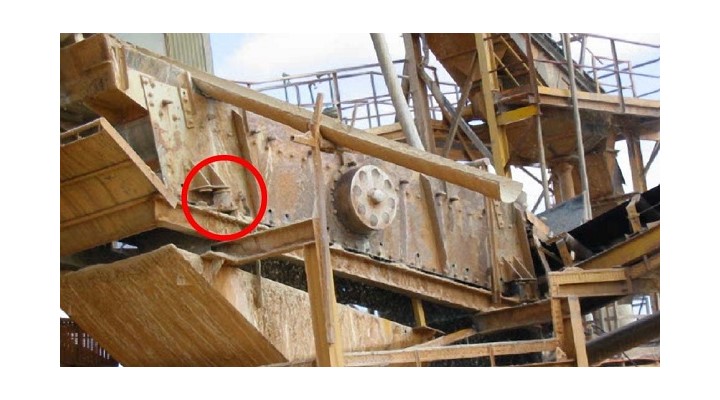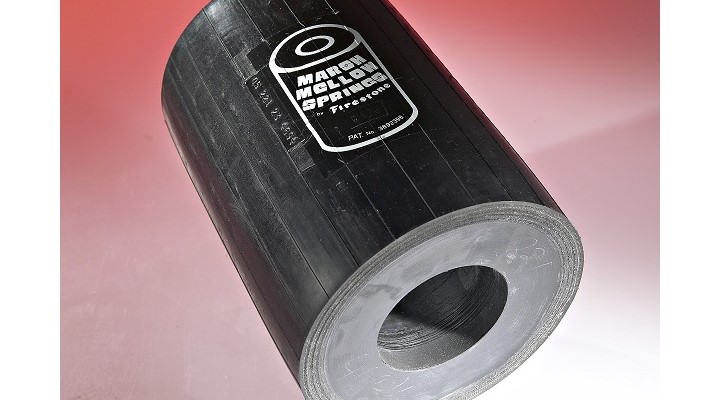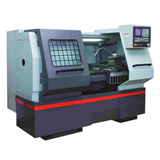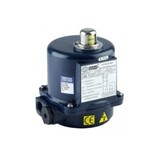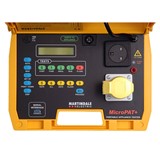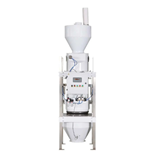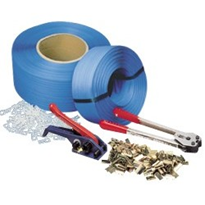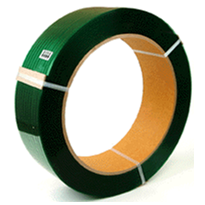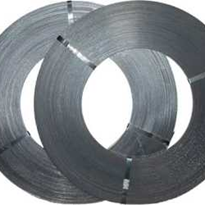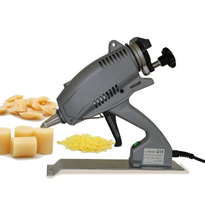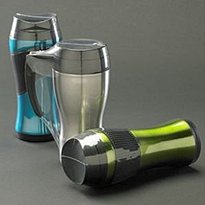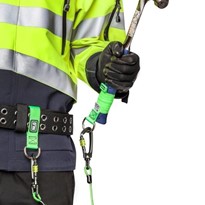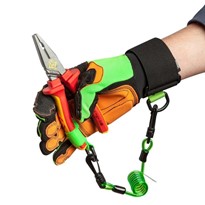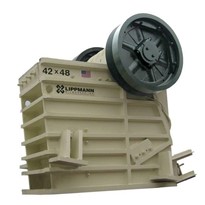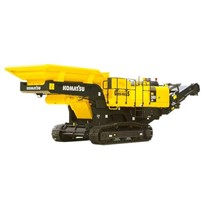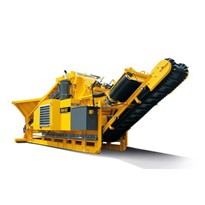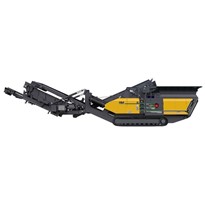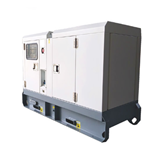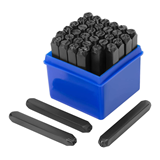This technical term simply means that some springs get tired over their lifetime of hard work and can settle, or set, suffering permanent compression by up to 27 per cent below their original design height. This means they don't perform to their original specifications.
Such spring wear can make the vibrating equipment they support potentially unstable and prone to breakages, because spring set doesn't always happen evenly, and can affect different springs under different parts of a screen or crusher to a different extent. One side may become more worn than another, for example, affecting dynamic stability, imposing uneven loads and even leading to breakages and production interruptions. The problem is compounded by the springs often being in the most inaccessible parts of machinery where workers have to crawl around in confined spaces, leading to delays and OHS issues.
One way to alleviate excessive spring set and breakages in a number of applications is by using proven rubber-and-fabric Marsh Mellow springs from Firestone, distributed throughout Australia by Air Springs Supply Pty Ltd.
Marsh Mellows are in use worldwide in applications such as shaker screens, crushing equipment, vibrating bins and other vibrating equipment used in applications including food processing, manufacturing, materials handling, quarries, mineral processing and primary product processing.
"While no one spring design is ideal for all applications, Marsh Mellows offer considerable advantages over both conventional coils and solid rubber springs for many tasks," James Maslin, Air Springs Supply, national sales and marketing manager, said.
They operate silently with more spring travel and greater load capacities than conventional coil springs, while outperforming all-rubber alternatives in many areas, such as greater load capacity and more compact size for comparable tasks.
They can't break, splinter or fragment like a metal spring and one of their big advantages is that they suffer only a maximum of 7 per cent compression set over the life of the part. This means they can be changed in and out of different sets of springs without upsetting the dynamic balance of the whole set.
Cylindrical Marsh Mellow springs are constructed of a solid rubber core with a hollow centre and several plies of fabric-reinforced rubber as an outer cover. The plies provide the springs with stability as well as a consistent cylindrical shape.
The spring's components (rubber, bias plies, size of centre) are combined in different ways to meet specific load and performance requirements (such as those of crushing and screening equipment). This gives them great flexibility and precision, says Maslin, whose company's experience spans several hundred applications of both solid and hollow (bellows-type) air springs throughout Australia over more than 20 years. (Details of applications can be researched on Air Springs' website, www.airsprings.com.au)
Vibration isolation
"Another of the big pluses of Marsh Mellows is that they offer constant vibration isolation with changing loads," Maslin said.
"Their variable spring rate allows for a nearly constant natural frequency under the impact of such loads.
"And because of the Marsh Mellows' greater deflection capabilities — and the load-carrying influences of the fabric reinforcement — it can carry a greater load when compared to a solid rubber part of the same modulus and dimensions."
Their ability to maintain a cylindrical shape while supporting greater loads means a smaller overall size can be used compared with an all-rubber springs of identical load capacity. This is important when considering an application with a small design envelope. Marsh Mellow springs' high load capability also means fewer springs may be needed in an application, resulting in less overall cost.
Marsh Mellow Die Springs can be compressed by up to 40 per cent of their free height at a cycling rate of 50 cycles per minute (cpm) or less. Cycling rates of up to 300 cpm can be attained.
Also, the lateral spring rate of a Marsh Mellow spring can be less than the vertical spring rate, resulting in a lower lateral natural frequency. The low natural frequencies of Marsh Mellow springs mean they provide excellent isolation of forced frequencies in the range of 800-1200 cycles per minute (13-20 Hz).
Increased stability, reduced downtime
Rubber is an incompressible fluid which will flow to the path of least resistance. This means that as a Marsh Mellow's height compresses, the fabric-reinforced rubber plies pantograph and the diameter grows. This supports the rubber core laterally, even at 30-40 per cent compression.
Marsh Mellow springs' flexibility also helps eliminate downtime and potential damage to machinery. When a coil springs fails, it will often crack, allowing fragments of the coil to damage equipment. This problem is eliminated with the rubber construction of the Marsh Mellows.
Additionally, Marsh Mellow springs exhibit exceptionally high overload characteristics and usually do not fail catastrophically, offering some support even during failure.
Marsh Mellow springs reduce structurally transmitted noise caused by vibration. Their operation is quiet, unlike steel springs, which often suffer coil chatter and readily transit high frequency structural noise. Marsh Mellows have no moving parts. No maintenance or lubrication is required to maintain their performance.
Naturally different types of springs have different performance characteristics suited to particular tasks. These should always be discussed with suppliers having wide experience in the particular area of application being considered.


